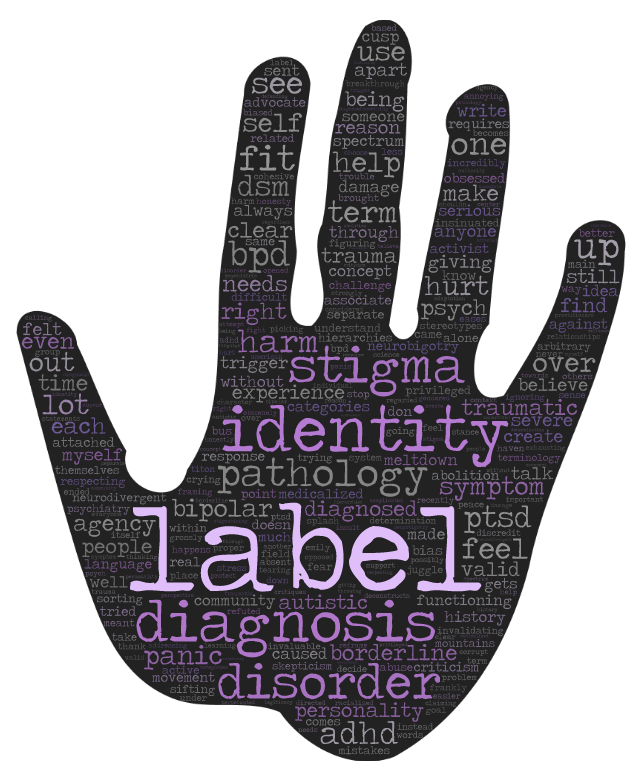Figuring out how to write this has been incredibly difficult for me. I felt like I was on the cusp of a breakthrough but sorting through how to talk about this requires sifting through mountains of traumatic experiences and mistakes I have made.
See, I’m someone who is active in neurodivergent activist communities but I have severe trauma related to the diagnosis of borderline personality disorder. As in the concept of it is a trigger for me. I get sent into a panic when the idea of its diagnosis gets brought up. If someone even insinuated I have it I would have a meltdown. I obsessed over it to the point of it damaging my relationships as well as my own functioning. Every time I would see someone talk about the symptoms I would find myself picking it apart trying to understand how I could have been diagnosed with it. Because it doesn’t fit.
In all honesty this still happens I’m just better at ignoring and challenging it. Frankly it’s incredibly exhausting and annoying. But also my response to this trigger has caused some serious splash damage against people who do feel like the term fits their experience. I tried to juggle addressing the stigma against borderline while also crying out about the harm it did to me. There’s a lot of valid criticism about its history, its framing of symptoms, and how it is regarded within the psych system. I still believe that the diagnosis is used to discredit and abuse people and I still believe that pathologizing people’s personalities is harmful. But I have had trouble talking about this without hurting someone who has been helped by the term “borderline”.
How do we create a cohesive movement and community that deconstructs the harm caused by pathologization without invalidating people? One reason that terminology is so important to me is that I know how much it can help people understand and talk about what they are going through. It helps people not feel alone and giving people language for experiences is invaluable. I myself strongly associate with PTSD, ADHD, and bipolar. I also recently opened up about being on the autistic spectrum. Yet I have been tearing apart a label that others use for the same reasons I use my own labels.
The main problem is that we are using medicalized terminology created from a corrupt and grossly privileged group of people. When it comes to trauma and stress disorders their bias becomes obscenely clear. These disorders ended up being gendered and racialized and separated into arbitrary categories of symptoms based off of stereotypes instead of science. What is considered a symptom itself is also arbitrary and up to individual, biased, practitioners. And honestly when they label something as a disorder of personality I don’t see how we could possibly separate the term from it’s attached stigma and I support. I believe we should advocate to stop calling borderline a personality disorder. Regardless, it’s not for anyone to decide for anyone else if a term makes sense for them.
I have never been opposed to people claiming labels and identities for themselves, but I haven’t always been clear about who my critiques are directed towards. It has ALWAYS been the DSM and the field of psychiatry. At times I have refuted that BPD is even a real concept. While it was meant as a stance of skepticism of the legitimacy of the DSM and a challenge of the authority of the American Psychiatric Association, these statements absent of proper context have perpetuated stigma. It came from a place of hurt and fear, but it was still harmful.
People use these terms because it’s the language that we have, even if it has a complicated history and a lot of stigma attached to it. One way I am learning to reframe it to make peace with myself is by thinking of it as a personality adaptation to trauma (thank you to Emily Titon for giving me this perspective). It feels less stigmatizing and it’s easier for me to understand that it’s not an insult to someone’s character. It eases my panic response to it.
Our community/movement needs to center defending each other from stigma and neurobigotry and we can’t do that if we are throwing each other under the bus. I shouldn’t talk over other people in their attempt to find words for their experiences. The goal of abolition for me is to take down hierarchies and to fight for and protect everyone’s right to self-determination and agency. That requires validating one another and respecting the language people choose to use for themselves.

